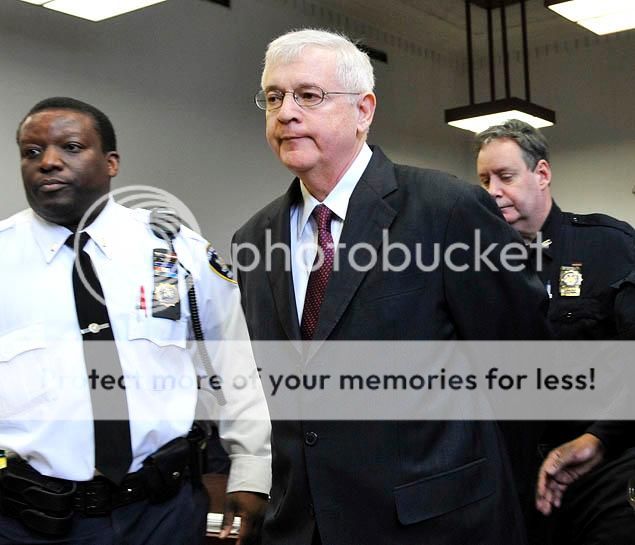PUBLISHED : TUES, 18 MAR 2014, 11:49 AM
UPDATED : MON, 21 APR 2014, 05:38 PM
With John Liu's lawsuit against New York City over conflicted city campaign finance regulators, this makes three federal referrals of elections violations, forcing Mayor de Blasio to lawyer-up, recruit special inside election counsel.
After a wave of federal complaints that have been lodged over electioneering violations in last year's municipal elections, Mayor Bill de Blasio has hired a special legal advisor specializing in election law.
- GOP consultant E. O'Brien Murray argued to the State Department that Patrick Gaspard, a former top White House aide with a deep history in Gotham politics, violated the federal Hatch Act by getting involved in Mayor de Blasio's campaign -- and City Councilwoman Melissa Mark-Viverito's subsequent election as speaker -- while representing the U.S. in South Africa. (GOP Operative Files Hatch Act Complaint Against U.S. Ambassador Patrick Gaspard * The New York Daily News)
- Louis Flores, a local political gadfly who ran a blog and wrote a book criticizing Christine Quinn, has filed a complaint with U.S. Attorney Preet Bharara’s criminal division against Scott Levenson and The Advance Group consulting firm, which came under deep scrutiny during the mayoral campaign. (Federal Complaint Filed Against The Advance Group for Election Work * Politicker)
- Former New York City Comptroller and failed mayoral candidate John Liu has filed a federal lawsuit against the city and its Campaign Finance Board. He says the board unfairly crippled his campaign by denying him matching funds in last year's race for mayor. (Ex-NYC mayor hopeful sues Campaign Finance Board * AP/The San Francisco Chronicle)
The federal complaints filed by Mr. Flores and Mr. Liu allege that the Campaign Finance Board is not sufficiently independent of political motivations to independently conduct investigations and to render fair and just decisions. Since Mayor de Blasio and City Council Council Speaker Melissa Mark-Viverito, and/or their political operatives, are entangled in some of these federal complaints, it should come as no surprise that Mayor de Blasio is now maneuvering to use his public office to defend himself against allegations of wrong-doing that took place during the electioneering of last year's municipal elections.
- RELATED : Henry Berger, a longtime election lawyer, previously served as election counsel to Bill de Blasio during his 2009 public advocate campaign, has been appointed to be "special counsel" to the mayor. (Election Lawyer Hired As Special Council To Mayor Bill de Blasio * City & State)
Mr. Berger had once saved Mayor de Blasio's political career when the election lawyer kept Mr. de Blasio from getting kicked off the 2009 race for public advocate after an error was found on a Board of Elections submission. In his new post, Mr. Berger "will provide legal counsel to the mayor and staff at City Hall," according to City & State. Other than the growing number of federal elections complaints that may implicate his Council speaker and himself, it's not known what other reasons exist for Mayor de Blasio to need a taxpayer-paid election lawyer to advise him.
Typically, the Campaign Finance Board "audits suspect claims long after an election and then imposes financial penalties on rule breakers," the Editorial Board of The New York Daily News wrote. In John Liu's case, the Campaign Finance Board "moved beyond policing violations to imposing the death penalty on a mayoral campaign."
As the staff of the Campaign Finance Board and the mayor's legal counsel become more politicized, it should not come to such a surprise that the mayor would receive preferential treatment at the hands of the Campaign Finance Board that he oversees.
Mayor @BilldeBlasio to return straw poll donations no questions asked, an option @NYCCFB never gave @JohnLiu4Mayor. http://t.co/fNOQXM716w
— Informed Voting (@informedvoting) April 21, 2014Among the complaints that Mr. Liu alleged in his complaint about the Campaign Finance Board, he noted that appointees to the Campaign Finance Board may follow the political agenda of those officials, who make the appointments. Mr. Liu further complained that two board members of the Campaign Finance Board had made campaign contributions to former Council Speaker Quinn's mayoral campaign ; in spite of their expressed interests in support of Mr. Liu's political challenger, the two board members refused to recuse themselves from the decision by city campaign finance regulators to deny public matching dollars to Mr. Liu's mayoral campaign. The Campaign Finance Board is a conflicted institution with political motivations that can be reflected in its decision-making.
- RELATED : In disqualifying Jon Liu from receiving public matching dollars for his mayoral campaign, the Campaign Finance Board distorted election results for no valid reason, and Liu’s court fight will surely get him fairer treatment from a federal judge. (The Ghost of John Liu * The New York Daily News)
- RELATED : Could the clash between John Liu and the Campaign Finance Board affect the push for statewide public financing ? (Campaign Finance Board leadership questioned * Newsday)
- RELATED : Common Cause/NY calls for Super PACs to be required to disclose their top five donors on all public materials (Common Cause on NY Jobs Now contributors * The Times Union).
- RELATED : The mayor and his Council speaker, who both reject checks-and-balances, oversee city campaign regulators nominally tasked to investigate campaign corruption of groups with close ties to the de Blasio-Mark-Viverito administration. (Scott Levenson, NY-CLASS, Citizens United Super PAC Investigation * NYC : News & Analysis)
Days before the general election, E. O’Brien Murray, a political operative advising Republican mayoral candidate Joe Lhota filed a complaint with the Campaign Finance Board, alleging that Mr. de Blasio was coordinating his campaign with an anti-Quinn Super PAC, according to The New York Post. Because of the board members of the Campaign Finance Board answer to the mayor and to the Council speaker, it's not known how serious city campaign finance regulators will investigate the complaint. It was out of precisely this concern that Mr. Flores lodged his complaint against Mr. Levenson and The Advance Group with federal prosecutors, to be able to remove the investigation from the conflicted Campaign Finance Board. Mr. Flores has separately said that he believes that the city's Department of Investigations, headed by a loyal ally of Mayor de Blasio, is also insufficiently independent from City Hall and City Council, to be able to conduct investigations that may implicate city officials or their political operatives.
Complicating matters is that reform advocates want to impose on New York State the very New York City model of campaign finance regulations, including a form of a matching public dollar program, even though city campaign finance regulations have been shown to be so questionable that activists are filing complaints at the federal level in search of a truly fair and independent review of violations.
| Documents show that former Utah Attorney General John Swallow sought to transform his office into a defender of payday loan companies that had helped bankroll his election. (A Campaign Inquiry in Utah Is the Watchdogs’ Worst Case * The New York Times) | Former New York City Comptroller John Liu will announce a “federal challenge” to the Campaign Finance Board after he was denied public matching funds during last year’s mayoral race. (John Liu to Announce ‘Federal Challenge’ to Campaign Finance Board * Politicker) |

